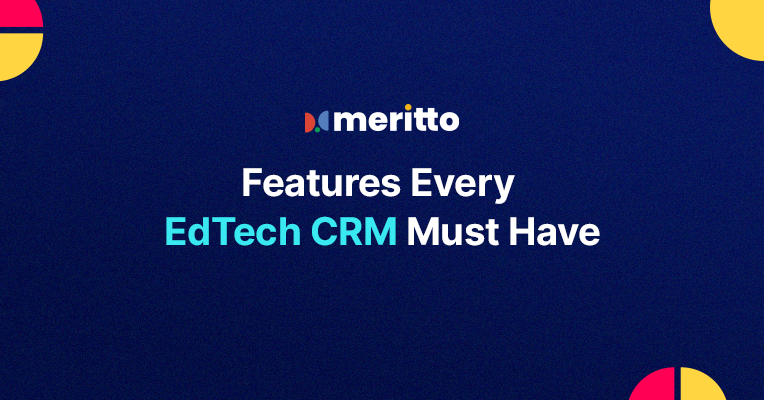In the competitive world of educational technology, having the right CRM can make or break your operations. For administrators, decision-makers, and enrollment teams, an EdTech CRM is not just a tool but a cornerstone for success. Here are the essential features every EdTech CRM must offer to ensure efficiency, scalability, and growth.
1. Centralized Lead Management
A robust EdTech CRM should centralize all inquiries from diverse sources—whether apps, APIs, or online forms. Centralized lead management eliminates duplicates and prevents lead leakage.
Why It Matters: For an EdTech business, managing leads from multiple platforms can be chaotic. A centralized system ensures all inquiries are tracked in one place, providing a comprehensive view of your enrollment pipeline.
Example Use Case: An online course provider integrated inquiries from their website and social media campaigns into a single dashboard, enabling streamlined tracking and follow-ups.
2. Smart Lead Distribution
Efficient lead distribution is critical for timely and effective follow-ups. Advanced CRMs use parameters like course, location, and rep availability to assign leads dynamically.
Why It Matters: Automating this process reduces manual errors and ensures high-intent leads are addressed promptly.
Example Use Case: A degree-awarding university increased response rates by automatically assigning leads to the most suitable advisors based on course preferences.
3. Omnichannel Communication
Seamless communication is a must. A CRM should support email, SMS, WhatsApp, and chatbots for personalized and contextual messaging.
Why It Matters: Engaging learners through their preferred channels increases the likelihood of conversions.
Example Use Case: A coding bootcamp used drip email campaigns and WhatsApp reminders to re-engage dormant leads, resulting in higher enrollment rates.
4. Field Force Automation
For on-ground teams, the CRM should offer features like geo-tracking, in-app calling, and mobile dashboards.
Why It Matters: On-the-go accessibility empowers field agents to engage leads effectively, boosting productivity.
Example Use Case: A test prep center utilized mobile tools to track field agent visits, enhancing accountability and lead management.
5. Advanced User Management
Role-based access and robust permissions are essential to maintain data security and streamline operations.
Why It Matters: Protecting sensitive learner data ensures compliance and builds trust among stakeholders.
Example Use Case: A global EdTech company implemented user hierarchies to define clear access levels, enhancing security while scaling their teams.
6. Automated Marketing Campaigns
Marketing automation allows targeted campaigns based on learner behavior and preferences. This feature is crucial for driving engagement.
Why It Matters: Automation saves time while ensuring precision in targeting, leading to better ROI.
Example Use Case: An MBA program ran personalized campaigns triggered by lead activity, driving higher application rates.
7. Payment Management and Fee Workflows
A comprehensive CRM should manage payments efficiently, including installment plans, automated reminders, and multi-account settlements.
Why It Matters: Simplifying fee collection improves cash flow and reduces administrative burden.
Example Use Case: An EdTech platform offering scholarships tracked payment statuses and late fees in real time, enhancing financial transparency.
8. Real-Time Analytics and Reporting
Detailed reporting tools should provide actionable insights into lead performance, team productivity, and enrollment trends.
Why It Matters: Data-driven decisions are critical for optimizing enrollment strategies and identifying bottlenecks.
Example Use Case: A language learning platform used real-time analytics to identify underperforming campaigns and reallocated resources effectively.
9. Cross-Sell and Upsell Capabilities
Identifying opportunities for cross-selling and upselling ensures maximum engagement and lifetime value (LTV).
Why It Matters: Offering relevant courses or programs to existing students strengthens relationships and boosts revenue.
Example Use Case: A professional development platform re-engaged alumni with advanced certification courses, increasing enrollments.
Why Choose Meritto’s EdTech CRM?
Meritto’s EdTech CRM incorporates all these features and more, ensuring your organization is equipped to handle the unique challenges of the education sector. With real-time insights, streamlined communication, and robust automation, Meritto stands out as the ultimate solution for educational businesses worldwide.
Ready to transform your operations? Discover how Meritto’s EdTech CRM can empower your team to achieve unparalleled success. Schedule a demo with Meritto and watch your enrollments soar.




